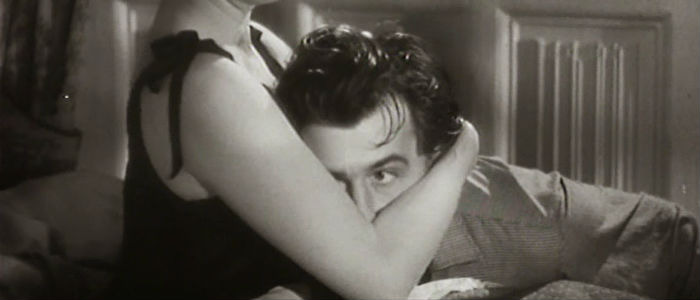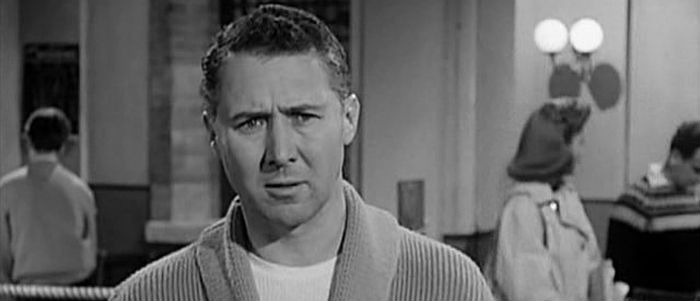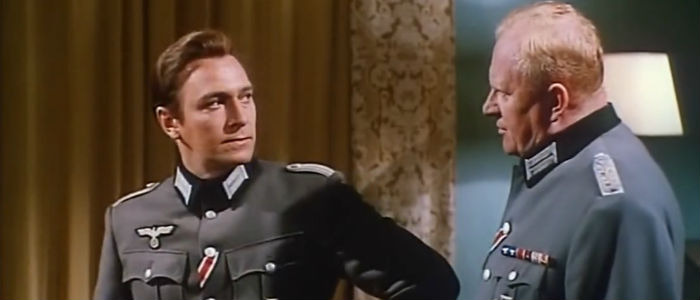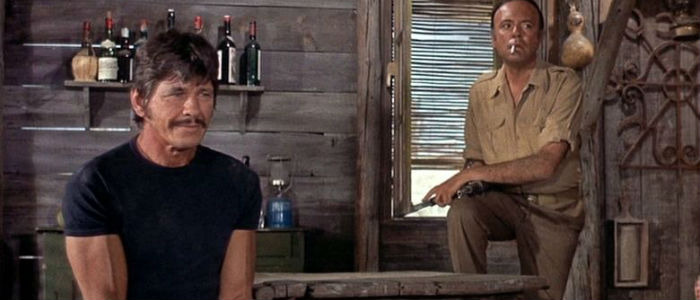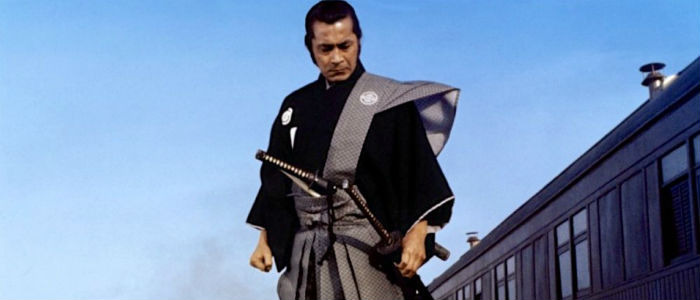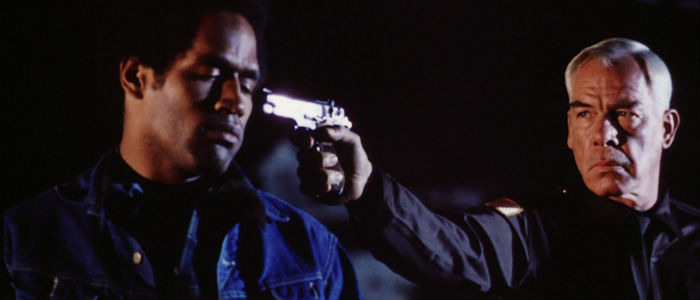The Best Terence Young Movies You've Never Seen
(Welcome to The Best Movies You've Never Seen, a series that takes a look at slightly more obscure, under-the-radar, or simply under-appreciated movies. This week we focus on a director who made nearly forty films over forty years but is best known for only four of them.)
Most filmmakers would be thrilled to have even a single movie resonate with audiences to the point of becoming entrenched in pop culture, but Shanghai-born Englishman Terence Young can claim four such films to his name. Sure three of them belong to the James Bond franchise, but Young is far from being some Johnny-come-lately there as he directed three of the very first entries – Dr. No (1962), From Russia with Love (1963), and Thunderball (1965). He also directed the equally acclaimed and well-respected Wait Until Dark (1967) which remains one hell of an intense and suspenseful thriller.
That's just ten percent of his output, though, so what about the other thirty-five films? We know they're not nearly as well regarded, but are they any good? Happily, the answer for some of them at least is yes with an even smaller number reaching the level of pretty great. Keep reading for a look at the best movies of Young's filmography that don't feature James Bond or a blind woman terrorized by Alan Arkin... and that you've probably never seen.
Woman Hater (1948)
Lord Terence Datchett loves women, but he most certainly doesn't want to be tied down to just one. He feels so strongly about it that he's not above encouraging his best friend to abandon his bride to be mere minutes before the ceremony, but his own confidence might be the end of him. Terence engages in a game of sorts after meeting a French star enjoying her own single status, but while he hopes to call out her hypocrisy it's his own that begins beating in his heart.
Romantic comedies pitting an unlikely couple against each other are nothing new, but the concept is an eternally fun one. Love finds a way, as they say, and while neither character is looking for romance they fall madly in love against their intentions anyway. Stewart Granger is best known for later supporting turns, but he does really good work here as the overly confident Terence who fumbles his way into a relationship. Edwige Feuillère is equally strong as Colette Marley and gradually reveals the mischief and playfulness beneath her calculated celebrity exterior.
The film lacks the star power of the sub-genre's best – think the fast-talking films of Frank Capra and Howard Hawks – but it's an entertaining watch all the same. The banter between Granger and Feuillère shifts as each thinks they have the upper hand in their shared deceit, and it's fun watching the pair play each other. The script is sharp and not above mining physical antics for laughs, and Young and his cast execute it all with both energy and enthusiasm.
Woman Hater is available on DVD.
Serious Charge (1959)
The Rev. Howard Phillips is a good man doing good work as the new vicar of a small town church, but while his heart is in the right place in his outreach towards local youths he underestimates the maliciousness of young ruffian Larry. When the boy's distraught and pregnant ex is hit and killed by a bus, Howard confronts him – and the teen trashes the room, rips his own shirt, and accuses the man of trying to molest him. With an entire town turned against him Howard struggles to prove his innocence against the hideous charge.
Sexual assault by members of the Catholic church is a sadly familiar topic these days, but it creates a shocking atmosphere in this late 50s small town. The film, of course, is far from explicit on the topic – the accusation is phrased as "he tried to interfere with me!" – but it captures well the weight of it all as the reverend's daily life becomes a series of disgusted glances, anonymously vile letters, and rocks thrown through windows. The vicar's also forced to defend himself from a drunken mob at one point, and lucky for him he's good with his hands.
The film finds suspense in the drama, and Anthony Quayle does great work in the lead role. He shifts easily between Cary Grant-like charm and sincere concern, and his growing troubles are worn in his expressions and building sadness. He's devastated by the accusation, obviously, but equally crushing is the realization that people could so quickly and easily believe the worst about him. It leaves him with an internal struggle when it comes time to forgive his flock as he finds that he can't. It's an unusual approach that makes for a compelling end to an engaging tale. For those who recognize the name, the film also offers the first screen appearance of British rock star Cliff Richard too.
Serious Charge is not currently available.
Triple Cross (1966)
Eddie Chapman is a talented and successful English safecracker who's finally arrested and imprisoned in the early days of World War II. When the Nazis invade he smooth talks his way into working for them as a double agent, but when he's back in British hands he twists his loyalties yet again promising to spy for his homeland. Did I mention it's based on a true story?
The film's biggest strength, as evidenced by the picture above, is Christopher Plummer. He can't sing his way out of the Nazi's grasp this time, but he's still every bit as charismatic of an impersonator as he was the year prior in The Sound of Music. The character is meant to be smooth as silk both with the various government officials and with the ladies, and Plummer does a brilliant job blending the charm with the smarm. He makes it clear that Eddie's only real loyalty is to himself, and you really can't fault the guy thanks to Plummer's winning turn.
Much of the film's two hours plus running time is focused on Eddie wooing those around him and wiggling his way out of situations, but there are mild action beats too as he finds himself actually acting out his spy duties. He parachutes into both Germany and England and is tasked with sabotaging a factory, but while these sequences manage minor suspense the film's most steady drama rests in the character's twists and turns. It's ultimately a bit overlong for what it is, but Plummer can do no wrong here.
Triple Cross is available to stream and on DVD.
Cold Sweat (1970)
Joe Martin's life is something of a dream. He's married, has a lovely step-daughter, and works as captain of a charter yacht on the coast of France. His happiness is shattered, though, when his past comes back to bite him in the form of the bad guys he left behind long ago. They're the men he escaped prison with and then abandoned after they quickly turned to murder, and now they've kidnapped his family to force him into committing another crime.
Charles Bronson's European travels from the late 60s into the early 70s gave him a nice vacation and movie lovers a handful of interesting films – there's another one below! – and while the plot here might feel fairly generic there's a distinctly European pacing to it all. We get to hang out with Bronson and Liv Ullmann as his wife, and even when the baddies arrive it's with simmering menace more than outright action at first. The always welcome James Mason leads the gang and classes up their ranks through his presence alone.
Young captures the beauty of the French coast, but his greatest accomplishment might just be a smiling and relaxed Bronson. I kid. That's legit great to see, of course, but more importantly Young delivers some thrilling action/suspense beats. We get a simple one early on as Joe disarms a gunman via a very cool (and simple) kick, but a later car chase of sorts delivers a far longer stretch of adrenaline-fueled fun along cliffside drops and oncoming traffic. It's a solid and satisfying thriller.
Cold Sweat is available to stream and on Blu-ray/DVD.
Red Sun (1971)
When a violent train robbery nets the thieves a gift meant for the U.S. president it sets in motion a chase across the vastness of the American West. It's 1870, and high-ranking Japanese visitors are en route to a ceremony where they're meant to hand off an antique sword, but when the villains steal it, they find themselves pursued by an honor-bound samurai and the man they double-crossed and left behind.
This second of three films in a row that paired Young with Charles Bronson – the third is 1972's The Valachi Papers – is a terrifically entertaining western that doubles as a mismatched buddy cop flick. Bronson's Link Stuart is a badass but likable robber who's only pissed off because his partner in crime has tried to kill him. Toshirô Mifune's Kuroda, meanwhile, is far more of a badass and proves it with his every move. The two make an unlikely pair in attitude and appearance, and as the sub-genre dictates they move from insults to banter to true respect and friendship. It's a beautiful journey that sees Ursula Andress and Alain Delon (as the big bad) along for the ride.
We get plenty of action along the way starting with the train robbery itself. It's carrying Union soldiers who quickly get caught up in the fray with deadly results, and it's just the first of several gun battles and fight scenes. The highlight, though, when it comes to the action is a non-violent scene featuring Link and Kuroda running down a hill together. It's ridiculously steep, and while the cowboy quickly stumbles and tumbles the samurai shows remarkable agility – he even trips, somersaults, and then continues on his feet. It's a crazy shot that's all the more impressive for its simplicity.
Red Sun is available on DVD.
The Klansman (1974)
Sheriff Track Bascomb has his hands full keeping the peace in his small Southern town that's home to a racist population and a black community who've had just about enough of their bull. When a white woman is assaulted and blames a black man the violence ramps up to deadly extremes leaving bodies on both sides of the race divide. A scheduled civil rights protest adds to the unrest, and soon no one is safe from man's inhumanity to man.
Look, this is an undeniably ugly movie as its focus is the worst that mankind has to offer, and it doesn't shy away from those horrible beats. Women are attacked, men are murdered, the N-word gets spat out so often you'd think you were watching a Quentin Tarantino marathon, and the KKK bastards even shoot the local liberal's dog. Like I said, it's ugly. Its hatred and cruelty are amped up at times to near comical levels, and while it sets up a narrative suggesting the good in some people can overcome the bad the film's ending suggests we're effed as a species anyway. Like I said twice now, it's ugly, but for those of us with little faith in humanity, it's a sadly engaging slice of Southern-fried exploitation.
The film's not well-liked for several reasons, and it doesn't help matters that two of its leads – Lee Marvin and Richard Burton – were reportedly drunk during production. Marvin hides it well enough to deliver a strong performance, but Burton? Hoo boy, that man is blotto from frame one as evident by his mumbled dialogue, fumbled lines, and clear disinterest in the entire experience. (His karate chop-filled fight scene is great fun though.) O.J. Simpson's presence is equally conflicting as a revolutionary efficiently picking off KKK members throughout the movie, and on the less controversial side, the film also stars Cameron Mitchell, David Huddleston, and Linda Evans. I can't argue really that it's good, but as messy and mean as the film gets it works as an ugly commentary on America.
The Klansman is available to stream and on Blu-ray/DVD. (The physical disc from Olive Films is the way to go as it's the only uncut release.)

